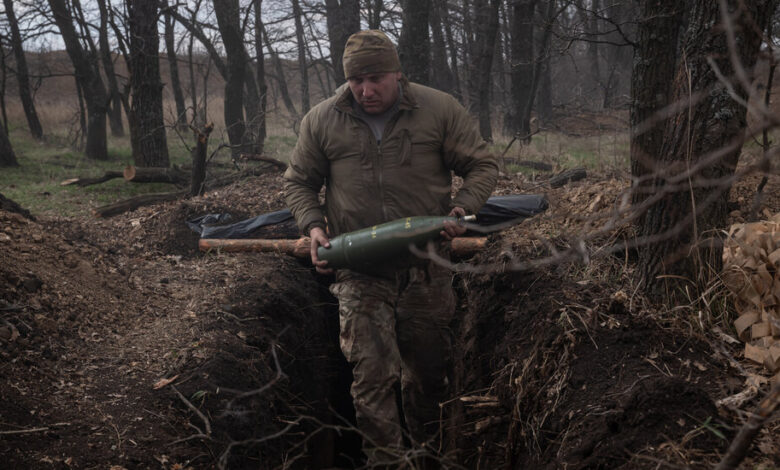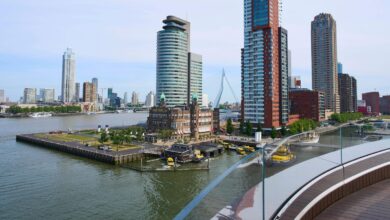Russia and Ukraine to Begin First Direct Peace Talks Since 2022

After days of confusion and theatrics, a makeshift summit kicked off in Istanbul on Friday, setting the stage for the first direct peace talks between Ukrainian and Russian negotiators since the beginning of the war.
The negotiations are not expected — even by President Trump, who called for them — to yield significant results. But the meeting itself is a win for President Vladimir V. Putin of Russia, who refused to agree to a battlefield cease-fire that Ukraine and almost all of its Western backers had sought as a precondition for talks.
Both Mr. Putin and President Volodymyr Zelensky of Ukraine have scrambled in recent days to be seen as responding to Washington’s demand for direct talks between their nations.
But despite encouraging the talks earlier in the week, Mr. Trump undercut them in comments on Thursday, saying “nothing is going to happen” until he meets with Mr. Putin. On Friday, Mr. Trump said he would meet the Russian leader “as soon as we can set it up.”
Secretary of State Marco Rubio reiterated that sentiment, calling it “abundantly clear” that a breakthrough wouldn’t occur until a meeting between the U.S. and Russian leaders took place.
“I don’t think anything productive is actually going to happen from this point forward until they engage in a very frank and direct conversation, which I know President Trump is willing to do,” Mr. Rubio said on Thursday.
On Friday, the Kremlin spokesman, Dmitri S. Peskov, said Moscow agreed. But he noted that such a meeting would require careful preparation.
Despite those sentiments, Mr. Rubio arrived in Istanbul early Friday for the talks. He and his Turkish counterpart convened a meeting with the Ukrainian delegation in the morning. The United States was then expected to hold a separate meeting with the head of the Russian delegation, before the Ukrainian and Russian delegations were slated to convene in the afternoon.
Mr. Rubio was joined by Keith Kellogg, the U.S. special envoy for Ukraine, and Michael Anton, the State Department’s director for policy planning. Turkey had expected Steve Witkoff, the U.S. special envoy for the Middle East and Russia, to attend, but he did not come.
The talks came after days of posturing and brinkmanship that ultimately left Mr. Zelensky outmaneuvered.
Last weekend, Mr. Putin proposed direct talks with Ukraine and announced that he would send a delegation to Istanbul for negotiations on Thursday. Mr. Trump chimed in that he supported the idea. Mr. Zelensky said he would himself go to the talks and called on Mr. Putin to also be there.
A Russian delegation arrived in Istanbul for the talks but Mr. Putin did not show up. Mr. Zelensky traveled to Ankara, Turkey, and met with the Turkish president, Recep Tayyip Erdogan, but he did not go to Istanbul.
After a day of confusion as to whether talks would take place — and who would attend them — the parties did not end up meeting on Thursday. At a news conference that day, Mr. Zelensky questioned Russia’s seriousness and the way the talks were being organized. But he agreed to send a Ukrainian delegation led by his defense minister to talks on Friday, saying he was doing so out of respect for Mr. Trump and Mr. Erdogan.
“There is no time of the meeting, there is no agenda of the meeting, there is no high-level delegation,” Mr. Zelensky said on Thursday after meeting with Mr. Erdogan. “I think Russia’s attitude is unserious.”
Maria Zakharova, the Russian Foreign Ministry spokeswoman, responded to Mr. Zelensky’s criticism by calling him a “clown,” a “loser” and a “person with no education at all in relation to people.”
Many in Ukraine have long feared that Mr. Trump will try to cut a deal deciding their country’s fate behind closed doors with Mr. Putin. Kyiv is likely to bristle at the new suggestions by the Trump administration that a solution to the conflict will come only through a one-on-one meeting between the U.S. and Russian leaders.
More broadly, the slapdash negotiations in Istanbul looked like an attempt by Mr. Putin to thread the needle.
He wants to keep the attention of Mr. Trump, who is promising a new era of warm ties for Moscow with Washington, and to convince the White House that he isn’t stonewalling on the peace in the Ukraine war that Mr. Trump promised as a presidential candidate.
But Mr. Putin is also still seeking Ukraine’s capitulation, both on the battlefield and in negotiations, after more than three years of full-scale war that has come to define his rule.
In talks with the Trump administration this year, Russian officials made what American negotiators considered unrealistic demands, including for territory still under Ukraine’s control in four regions that Moscow claims to have annexed.
Skeptics say Mr. Putin could be using the midlevel talks to convince Mr. Trump that the Ukrainians are the obstacle to peace, hoping that the U.S. president will walk away from Kyiv but continue his rapprochement with Moscow — or force a raw deal on Ukraine that is favorable to the Kremlin.
Valeriy Chaly, a former Ukrainian ambassador to the United States, said in a social media post that Russia’s only aim was to drag out the talks to prepare for an effective offensive soon. On Thursday, Mr. Zelensky told journalists that Russia had concentrated 67,000 troops near the Sumy region of northeastern Ukraine for a renewed offensive there.
And Major Oleh Voitsekhovsky, a Ukrainian officer fighting on the eastern front near Lyman, said, “Putin is just playing for time.”
Vladimir Medinsky, a Kremlin aide and former culture minister who is leading the Russian delegation, said on Thursday that his team was ready to resume the talks that took place in Istanbul at the start of the full-scale war in early 2022, the last time Russia and Ukraine held formal direct negotiations.
“We are ready for possible compromises and for their discussion,” Mr. Medinsky said.
During those talks, negotiators produced multiple drafts of a treaty meant to both guarantee Ukraine’s security and satisfy the Kremlin’s demands, but the negotiations ultimately fell apart.
Maria Varenikova in Kyiv, Ukraine, and Nataliya Vasilyeva and Safak Timur in Istanbul contributed reporting.






